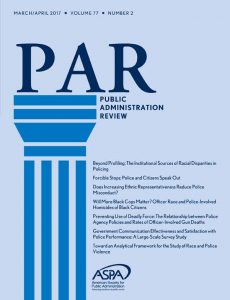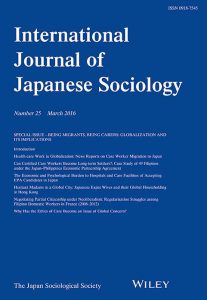Book Review – Dean's List: 11 Habits of Highly Successful College Students
It would be nearly impossible to imagine John Bader, a dean of Undergraduate Academic Affairs at Johns Hopkins University and author of Dean’s List: 11 Habits of Highly Successful College Students, ever uttering the lines of Larry Summers (fictional Larry Summers, that is, as represented in The Social Network). The Summers character, on the phone with his wife, glares up at two young men in his office and says: “I have to go, dear. Students are here. Undergraduates.” Those moments in the film represent an all-too-common phenomenon on many a college campus: the distance, both perceived and experienced, of so many administrators from their students (Nathan 2005; Moffatt 1989). Of course, a dean, as Bader is, is not the same thing as a President, as Summers was. And it is to Bader’s great credit that he provides incoming undergraduates with straightforward explanations of the difference – and of universities’ institutional structures, those structures’ corresponding roles, and those roles’ respective relationships to students (Habit Three, p. 52-96). Bader’s enthusiasm for students and his desire to help them “work the system by understanding the system” is evident throughout Dean’s List (p. 52). Yet much of the advice that Bader and his contributing colleagues from what he calls Hopkins’ “peer institutions” (or as the back of the book less diplomatically puts it, “top institutions”) assumes that college students are alike in privilege. Bader begins by affirming ideas of meritocracy and individualism:
Congratulations! You did it. You got into college! Maybe you’re going to Princeton, Michigan, Duke, Berkeley, Stanford, or another of the best research universities in the world. Or perhaps you’re bound for a great liberal arts college like Swarthmore, Davidson, Pomona, or Kenyon Maybe it’s a private college in New England or the flagship campus of your state university system. That is wonderful, and I’m sure, well deserved. You’ve worked hard the past few years, building an amazing record of academic achievements, community service, and activities that have kept you busy and challenged. You sweated through exams like the SAT, filled out countless applications and forms, and waited in agony to get word from your dream schools. And now you’re in. (p. 1)
Indeed these lines indicate how Bader envisions his readers: traditional college-aged students who will be residing on campus, and who have the resources to ensure that no matter what happens, “[they] will be fine” (p.137).
Bader breaks down the eleven habits he recommends, devoting a chapter for each. Six of the eleven habits –1, 4, 5, 6, 7, and 9—deal with courses of study and careers, generally encouraging students to decouple the former from the latter. Habit One, “Focus on Learning, Not on Grades,” urges students to place their GPA concerns on the backburner and strive instead to become a “learned person.” Bader cautions students that although their colleges have already taken steps to define what it means to be a “learned person” for them through core requirements, students must work to craft their own definitions (p. 26) and that in doing so, grades will become the “byproduct of their passion for learning” (p. 30). Habit Four, “Approach the Curriculum Like a Great Feast,” advises students to “sampl[e] [their] way to success” (p. 79), but pays little attention to dissonance this suggestion may bring to the many students who feel pressure to preserve tuition dollars for courses that will cultivate skills that translate into incomes for themselves and their families. In place of such discussion, Bader offers Habit Five, “Understand that Majors and Careers are not the Same Thing.” College students and their parents are prone to “invent the connection to better justify the expense and effort of going to college at all” (p. 97).
Habit Six proposes a distinction between working hard and working smart. Working smart, Bader suggests, entails understanding how teaching and learning are structured in college: lectures provide efficient delivery of material, and if students are to avoid being “court reporters” then they will need to take an active role in the lecture, putting the lecturer’s content into a conversation with their own thoughts (p. 125). Such private conversations will serve students well when they apply for admission to graduate or professional schools, as laid out in Habit Seven. Honesty and individuality, Bader argues, are the traits that facilitate the subject mastery and sense of self that graduate schools desire in their students (p. 140). Bader sticks to this idea of individualism in Habit Nine, “When You Are Failing, Understand Why.” He examines “four broad reasons for academic struggles”: lack of motivation, poor time management, weak study skills and talent, poor mental and physical health (p. 177). What Bader does not examine is a key commonality among these four reasons – that they are all problems attributable to individuals rather than issues stemming from systemic problems that students might experience as members of social groups (e.g. as first-generation college students, as children of working class parents, as students of color, etc.).
Habit Two, “Build an Adult Relationship with Your Parents,” makes evident many of the assumptions that are just as present, but perhaps not as explicit, through the rest of the book. Bader recounts difficulties students with “helicopter parents” – for instance, the parents who flew in from Hawaii to speak with him about their son’s progress twice in two weeks – but he does not recognize that many parents do not feel entitled to make such demands on faculty and administration, and that consequently their students might be less likely to have close contact with faculty and administrators. Furthermore, Bader does not consider the possibility that many students may already have “adult” relationships with their parents, having contributed to the family income and household management throughout their middle and high school years.
Much of Dean’s List presents college success from the perspective of privilege-as-norm. As few as one in four college students live on campus and study full time (Abramson 2011). When Bader advises students to “learn from diversity at home and abroad” (Habit 8), he does not consider the difficulties of studying abroad for students who have jobs outside of school. Indeed study abroad programs struggle to engage students of color, first generation college students, and students who have to work to pay their own tuition (e.g. Stuber 2011).While Bader and his colleagues offer important and helpful recommendations to students, they put the onus on students to conform to norms of privilege rather than opening up a conversation about success that really recognizes and appreciates where students are coming from.
References
Abramson, Larry. (2011). “In Tenn., A Possible Model for Higher Education.” National Public Radio. Retrieved from http://www.npr.org/2011/11/27/142759691/in-tenn-a-possible-model-for-higher-education
Moffatt, Michael. (1989). Coming of Age in New Jersey. New Brunswick: Rutgers University Press.
Nathan, Rebekah. (2005). My Freshman Year. Ithaca, NY: Cornell University Press.
Stuber, Jenny. (2011). Inside the College Gates. Lanham, MD: Rowman and Littlefield.

![By Simons/Staff Sgt. (according to Exif data) [Public domain], via Wikimedia Commons](https://www.sociologylens.net/wp-content/uploads/2016/10/Starlifter_contrail.jpg)



1754-9469/asset/society_affiliation_image.gif?v=1&s=9197a1a6ba8c381665ecbf311eae8aca348fe8aa)

Argh. I graduated from Hopkins in May 2011, and this nicely summarizes the cause of a lot of my problems while I was there. While both my parents and three of my grandparents did go to college, their experiences were completely different than mine–painless admissions process, laid-back local state schools, living at home, training programs for specific careers, etc–the result being that I was left to navigate a world of privilege and unspoken rules pretty much on my own. Predictably, it didn’t go overly well. My day-to-day experience was social-class culture shock in so many ways, although I didn’t realize it until late in the game… public-school alumna that I was, I assumed we were all from comparable backgrounds, so there must have been something wrong with me
My freshman and sophomore years, I spent all my time focusing on academic minutia, trying to become an “educated person” and please ridiculous professors. Then on-campus housing dried up, and although my family is solidly middle-middle-class, I still had to work 10-20 hours a week my junior and senior years to pay for my apartment. I was continually having to invent excuses and take professorial cold-shoulders when I just couldn’t get everything done. They never seemed to consider that any of us had anything to do besides schoolwork. I started to see through all the BS of academia and, increasingly disillusioned, gave up on my earlier plan to go to grad school. It was probably the one good choice I could have made, but I just couldn’t bring myself to do it. No more ivory towers for me.
Now, unemployed since November (and only employed before that because of a temp pity-extension of my student job), I’m kicking myself for wasting all that time in my first half, industriously memorizing German grammar instead of getting the Computer Science or Economics second major that could have meant a job. And for focusing on short-term financial gain instead of setting myself up for the long term. I should have sucked up to professors, I should have networked and made contacts (however you do that… I’m still not sure), I should have studied abroad for a semester–cost and parental provincialism be damned– because that might have been my only chance for a long, long time to see the world. But I bought into the “educated person” thing, and then lost the money and the will to see it through, and now… it’s just me and my creative writing degree, floundering in our craptastic economy and looking back at college with 20/20 hindsight.
I can think of other people with similar, or worse, stories. I wish Orientation had included some sort of class for non-rich kids or something… or that the whole college-industrial complex would be done away with and replaced.